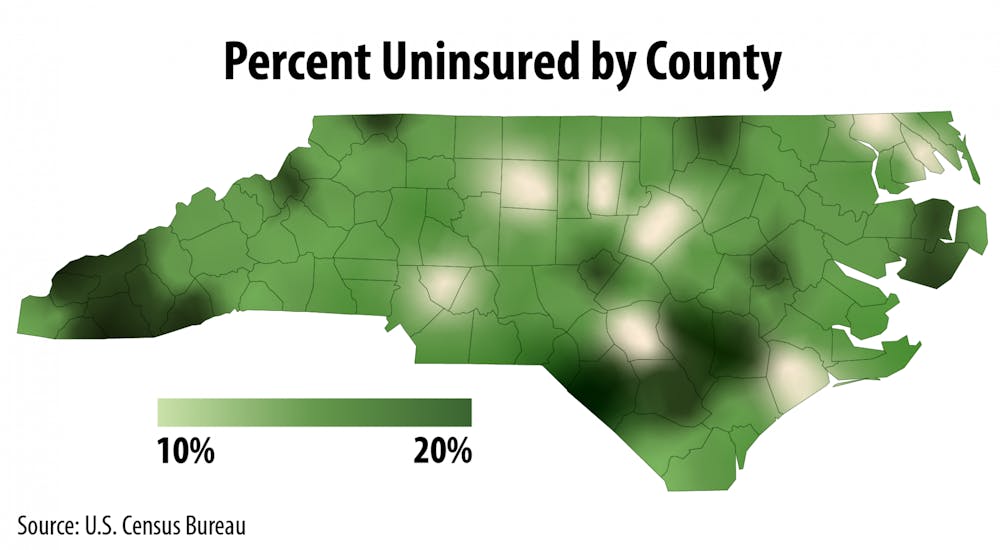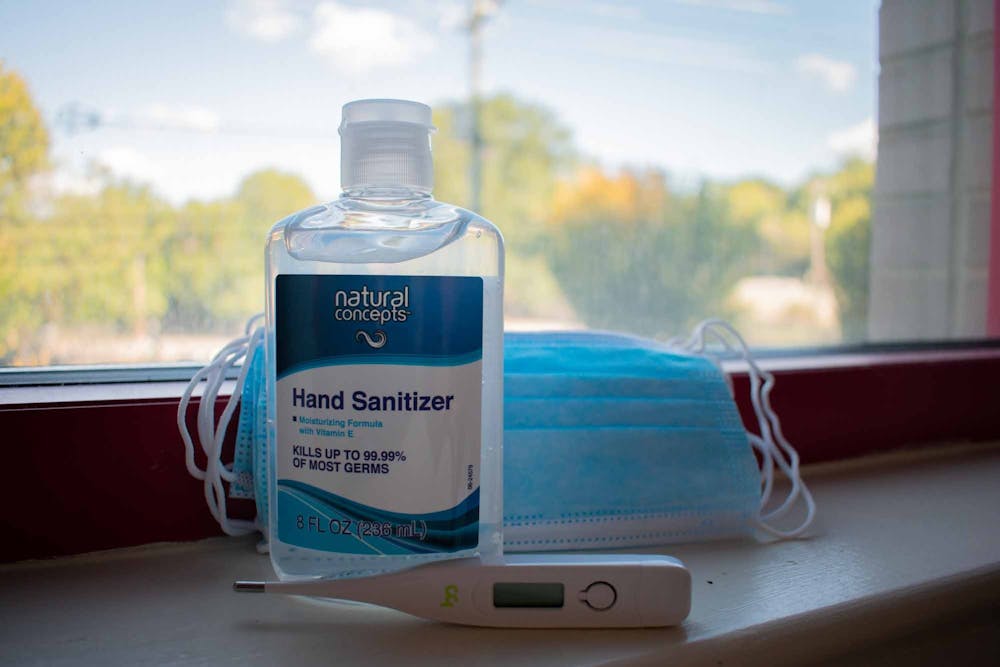N.C. Rep. Graig Meyer, D-Caswell, Orange, and N.C. Rep. Donny Lambeth, R-Forsyth, said because health systems stand to gain profits from the expansion of Medicaid, many of them have pledged to pay the state’s cost of the program. If legislators were to expand Medicaid in the state, this would prevent any state taxes from funding the program.
The N.C. Department of Health and Human Services estimates that Medicaid expansion could provide over 500,000 North Carolinians with health insurance.
William Munn, a health policy analyst at the left-leaning N.C. Justice Center, said a large uninsured population strains health care systems. He said patients wait until absolutely necessary to receive care and often cannot repay their debt.
These problems are magnified in rural communities, where there are fewer patients and a higher uninsured population. Seven rural hospitals have closed in North Carolina since 2013, according to the N.C. Rural Health Research Program. The N.C. Justice Center estimates that an additional 15 rural hospitals are vulnerable to closure.
Munn said that since the beginning of the pandemic, hospitals have reduced elective surgeries and procedures that bring in most of their revenue. He said Medicaid expansion could have accounted for some of this lost revenue.
Jordan Roberts, a health care policy analyst at the John Locke Foundation, a conservative think tank, said his organization recognizes problems with the proportion of uninsured North Carolinians, but believes Medicaid expansion is not an appropriate solution.
“I would hope that there would be enough Republicans that would support something like a State Innovation Waiver where it would be roughly the same process of expanding Medicaid but we would just be done in the private sector, as opposed to the public sector” Roberts said.
A section of the Affordable Care Act allows states to use funding for different programs rather than directly expanding Medicaid. Fifteen states have had these waivers approved — North Carolina is not one of these states. Most states have used the funding to establish reinsurance programs that cover any medical bills above an established threshold.
“When insurers are sure that they won't have any exorbitant claims, they are able to reduce premiums across the board,” Roberts said.
In November, there are 170 seats in the N.C. General Assembly up for election. Both Republican and Democratic candidates have proposed solutions to this rising issue.
Meyer said Medicaid expansion is the Democrats' primary legislative objective and a focal point of campaigns across the state.
He said the House of Representatives passed a bipartisan Medicaid expansion bill in 2019, but Republicans in the Senate refused to bring the bill up for a vote.
To get the day's news and headlines in your inbox each morning, sign up for our email newsletters.
“They are risking their legislative majority on doing so because it is the number one campaign issue for us this year," Meyer said. "And if the public agrees with us that health care is the most important thing that we can address, then we'll have a majority.”
However, the health policy landscape in the General Assembly is not as binary as it may appear. A recent poll from Care4Carolina, an advocacy group for affordable health care, found that 77 percent of North Carolinians supported Medicaid expansion.
Some Republican legislators support alternative forms of Medicaid expansion.
Lambeth has proposed multiple alternative Medicaid expansion plans with specific requirements attached. His plan would impose work requirements and health guidelines on participants. He said his plan differed because of its focus on wellness.
“You had to take care of yourself, you had to go for your screenings. If you were obese, you had to work on your weight,” Lambeth said. “Wellness, if done correctly today, will save a significant amount of money later with health conditions."
Although these guidelines would be opposed by some Democrats, Lambeth said Gov. Roy Cooper would have signed the expansion into law.
Lambeth also said Republicans are concerned Congress will increase the proportion of Medicaid expansion that states owe, so his plan ensures insurance companies bear the financial cost of the program. Nevertheless, he has been unable to alleviate his colleagues’ concerns.
Donna Lake, the Democratic candidate for N.C. Senate District 7, is running for one of the most competitive seats in the General Assembly. Despite failed attempts in the past to bring about bipartisan health care reform, Lake was optimistic about the possibility for change.
“Health policy is my love,” Lake said. “I see myself as a bridge maker, that's what I've done in my life, is to look how to research ethically built health care programs, and then implement them.”
Munn said the outcome of the election will determine health care policy in North Carolina for the foreseeable future.
"Closing the coverage gap, and expanding Medicaid to address the number of uninsured in North Carolina is absolutely contingent on a new composition in the General Assembly," Munn said.
@Jacob_M_Andrews
@DTHCityState | city@dailytarheel.com





